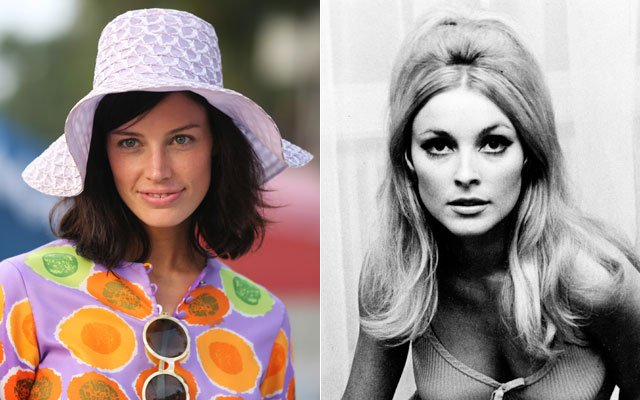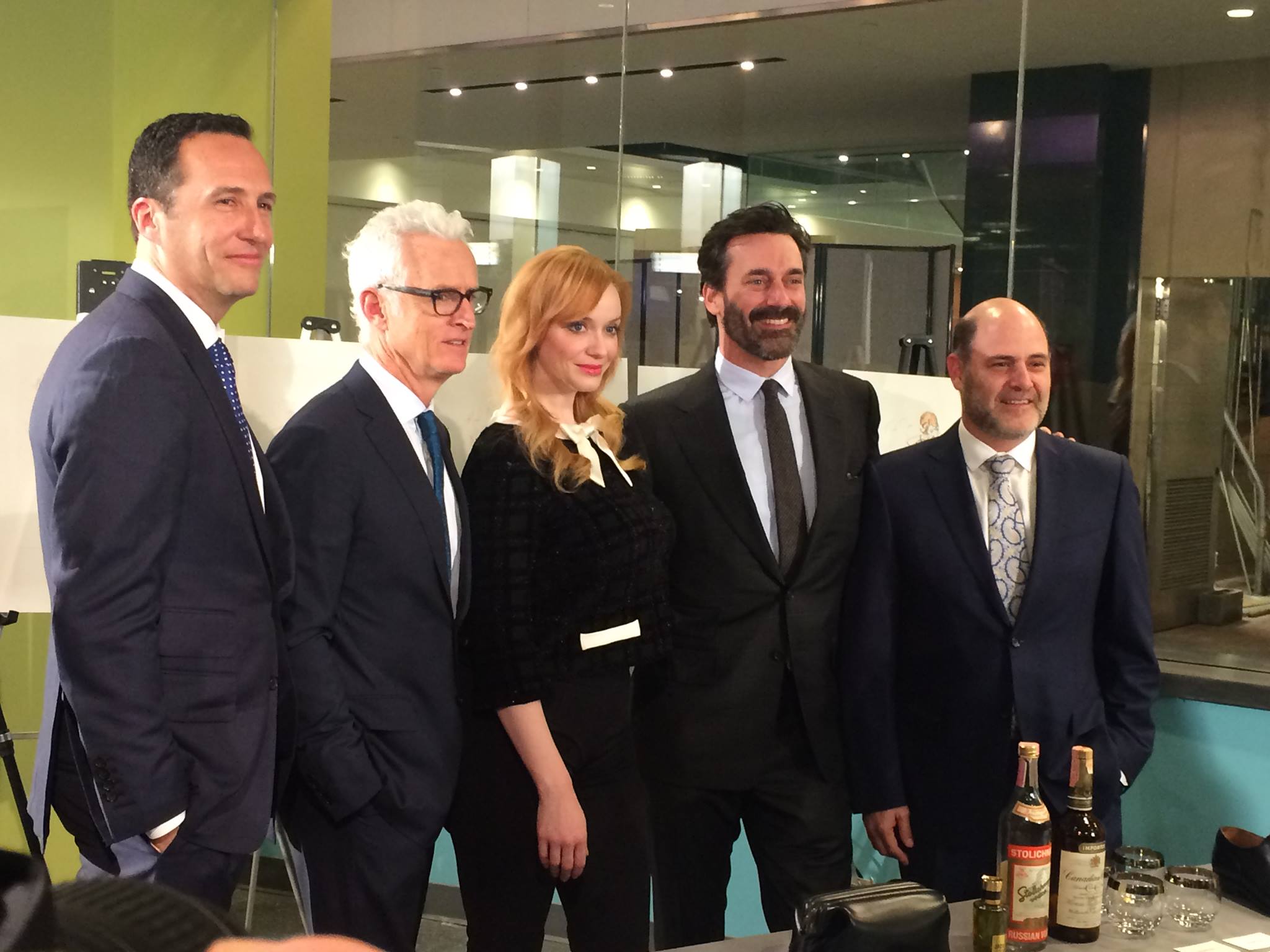WASHINGTON — Forget that it’s won 15 Emmys, including a record four straight for Best TV Drama.
Forget that it’s won four Golden Globes, three for Best Drama and one for Best Actor (Jon Hamm).
And forget that it was just enshrined by the Smithsonian National Museum of American History.
Even without such accolades, AMC’s “Mad Men” rivals history’s best TV dramas on merit alone. The debate is impossible to settle until we see how creator Matthew Weiner wraps up the final seven episodes beginning this Sunday at 10 p.m. Think of it as one last Don Draper sales pitch for greatness.
Is “Mad Men” the greatest TV Drama in history? It depends how you define greatness:
“The Sopranos” deserves the title for its unrivaled originality, literally inventing the format for original cable content, launching the careers of TV titans like Weiner (“Mad Men”) and Terrence Winter (“Boardwalk Empire”) and crafting a killer finale that still has folks talking.
“The Wire” deserves the title for its unrivaled efficiency, sticking to just five seasons, each exploring a different aspect of corruption through an ensemble of memorable characters, while so many other shows got “Lost” in meandering subplots and “jumped the shark” while playing the ratings game.
And “Breaking Bad” deserves the title for its unrivaled urgency, feeding us cliffhangers with a daring array of quotable lines, flashy camerawork, deep character development and power performances.
Meanwhile, “Mad Men” deserves the title for its historical commentary, allowing actual events and narrative fiction to interact with double meanings, right down to the title of Madison Avenue ad men. No show explores who we are, where we come from and where we’re going quite like this one.
The show is so much more than its period garb, smokes and drinks. These are mere shiny pieces of the show’s fancy packaging. It’s the product within that stands out in today’s era of special-effects spectacles, fulfilling a promise made in the first season finale: “There’s the rare occasion when the public can be engaged beyond flash.” As Don describes the Kodak carousel as a time machine, he might as well be describing the show: “In Greek, nostalgia literally means pain from an old wound. It takes us to a place where we ache to go again.” “Mad Men” takes us to a time and place we crave, not to relive fond memories, but to right old wrongs with an evolved knowledge of hindsight.
It’s the same thing that makes “Citizen Kane” and “The Godfather” iconic American tragedies. The show’s anti-hero, Don Draper, suffers from the same tragic impulses as Charles Foster Kane and Michael Corleone, blinded by American Dream ambitions while longing for the lost innocence of a corrupted youth. As Don says in “The Summer Man” (Season 4, Episode 8), “We’re flawed because we want so much more. We’re ruined because we get these things and wish for what we had.” These words could echo from Kane’s “rosebud” lips, while recurring shots of a lonely Don — sitting alone on Betty’s staircase or Megan’s balcony — reflect the hollow stare of Corleone’s Lake Tahoe eyes.
Don repeatedly grapples with his scarred past by pursuing insatiable desires — namely, booze, money and women. His past is so horrific that he now lives in the present with no regard for the consequences of his future. As he says in the pilot, “Smoke Gets in Your Eyes” (Season 1, Episode 1), “What you call love was invented by guys like me to sell nylons. … You’re born alone and you die alone and this world just drops a bunch of rules on top of you to make you forget those facts, but I never forget it. I’m living like there’s no tomorrow, because there isn’t one.”
This fatal flaw of insatiable desires is best articulated in “Commission and Fees” (Season 5, Episode 11) as Don says, “Even though success is a reality, its effects are temporary. You get hungry even though you’ve just eaten. … You’re on top and you don’t have enough. You’re happy because you’re successful — for now. But what is happiness? It’s a moment before you need more happiness.”
But this story isn’t just of one flawed man. Don’s story is America’s story, a series of reinventions through willing self-deception. Characters reinvent their identities to “sell themselves” like the products they pitch. Just as Oz said, “Pay no attention to the man behind the curtain,” this protagonist wants us to pay no attention to the Don behind the Draper. Starting over with a clean slate requires simple willpower. As Don tells Peggy Olson in the “The New Girl” (Season 2, Episode 5), “Move forward. This never happened. It will shock you how much it never happened.”
On a deeper level, companies reinvent their brands by reinventing material products, from Kodak to Lucky Strike, Heinz to Hershey. Behind each sales pitch is a deception of the firm you’re trying to persuade. Behind each product is a larger deception of the public that everything old is new again.
On the deepest level, the show chronicles how the 1960s reinvented America, from a historic election in “Nixon vs. Kennedy” (Season 1) to the Cuban Missile Crisis (Season 2), from the assassination of JFK in “The Grown-Ups” (Season 4) to the assassination of MLK in “The Flood” (Season 6). The latter tragedy sparks an argument between Pete Campbell and Harry Crane that sounds as if it could still be made today: “Did you know we were in the presence of a bonafide racist?” Pete says, to which Harry replies, “That’s the latest thing, isn’t it! Everybody’s a racist!”
Still, the show’s best commentary on race remains more subtle, starting with black bellhops in the first season and ending with black co-workers at the office in the last season. Let’s also not forget that “Mad Men” premiered in 2007, a year before America’s first African-American president. In a way, the show marks our time just as much as the 1960s Civil Rights Movement it portrays.
In “The Beautiful Girls” (Season 4, Episode 9), Peggy argues that women suffer similar oppression. “Most of the things Negroes can’t do, I can’t do either,” Peggy explains, to which her boyfriend jokes, “All right, Peggy; we’ll have a civil rights march for women.” Decades from now, we may look back at “Mad Men” as the ultimate chronicle of women’s rights, whether it’s Peggy’s rise from secretary to shot caller, Joan’s rise from rape victim to company partner, Betty’s transition from nervous breakdowns to the courage of divorce, or Megan’s shift from whirlwind marriage to long-distance breakup. What better way to tell the female struggle than setting it during the pivotal 1960s but telling it through the evolved hindsight of the 21st century?
Have we really moved past these issues? Or are we fighting these same battles under new names? Is America — like Don — deceiving itself in its ability to change? Are we doomed to a tragic “Vertigo” plunge like the falling paper cutout in the opening credits?
Or does America — like Don — have the power to learn from our original sins? We saw a hint of redemption in “The Flood” (Season 6, Episode 5): “I don’t think I ever wanted to be the man who loves children. But from the moment you’re born, that baby comes out and you act proud and excited, hand out cigars. But you don’t feel anything. Especially if you had a difficult childhood. You want to love them, but you don’t. And the fact that you’re faking that feeling makes you wonder if your own father had the same problem. Then one day they get older and you see them do something, and you feel that feeling that you were pretending to have. And it feels like your heart is going to explode.”
This is what hangs in the balance in the final seven episodes. Don’s fate is our fate as a nation — or at least, Weiner’s interpretation of our fate as a nation. If that’s not reason enough to watch, nothing is.








